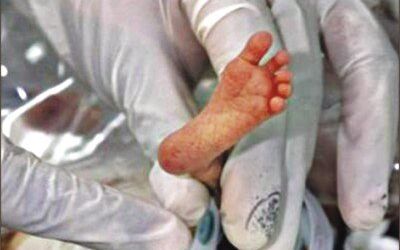Children born extremely preterm may face a much higher-than-average risk of developing autism later in childhood, a new study suggests.
Researchers found that of 219 children born before the 26th week of pregnancy, 8 percent met the criteria for an autism spectrum disorder (ASD) at age 11. That compared with none of 153 classmates who were born full-term and included in a comparison group.
The ASD rate was far higher than that in the general population, which experts estimate to be somewhere between one and nine cases per 1,000 children, depending on how strictly the disorders are defined.
ASD refers to a group of developmental disorders that hinder people’s ability to communicate and build relationships. The conditions range from severe cases of “classic” autism to Asperger’s syndrome — a disorder in which a person has normal intelligence and verbal skills, but difficulty socializing and understanding subtler forms of communication, like body language and vocal tone.
This latest study shows not only a substantially heightened risk among children born very preterm, but also points to which of these children are most likely to be affected.
“The study shows an increased frequency of ASD, but it is mainly among children with other disabilities, such that the risk of it developing in children with no other problems is very low,” explained Dr. Neil Marlow, a professor of neonatal medicine at University College London, in the UK, and one of the principle researchers on the study.
Medical advances have meant that more and more very premature and low-birthweight newborns are surviving. Still, they face increased risks of delayed development, learning disabilities and behavioral problems later on.
“We know that very preterm babies’ brains develop differently to those of full-term babies after birth, and that this is associated with a high frequency of cognitive problems in childhood,” Marlow expressed in a statement.
The impaired brain development in these children may account for the high ASD risk, the researchers speculate. And that, they say, means that autism may arise via different mechanisms in extremely preterm children compared with those who were born full-term — for whom, Marlow noted, genetics are believed to be key.
For parents of children born extremely preterm, the findings mean that they should be aware of the possibility that their child’s learning or behavioural issues could be indicative of an ASD.
“Where a parent is worried about learning or behavioural problems in their very premature baby,” Marlow said, “they should seek advice from a professional to see what the nature of these problems is.”
Source: The Daily Star, February 20, 2010





 ক্যান্সার প্রতিরোধ
ক্যান্সার প্রতিরোধ
Leave a Reply